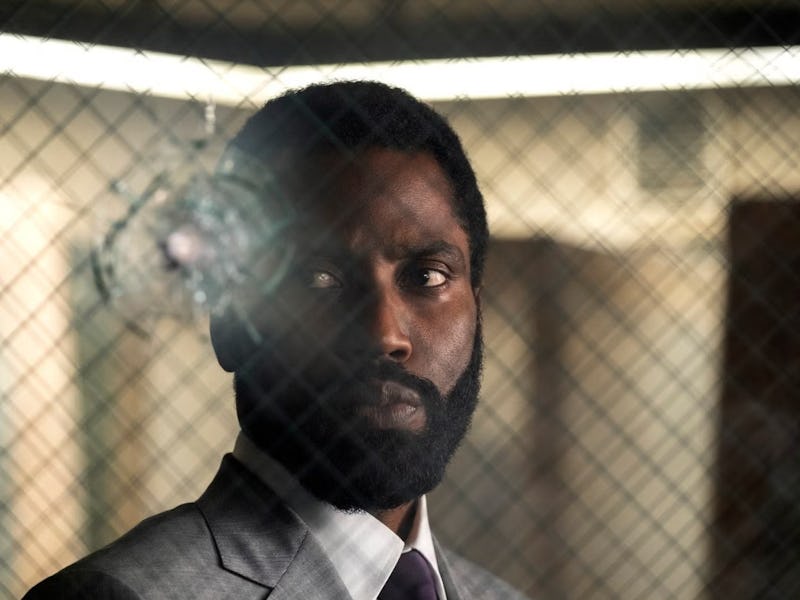5 Years Later, Tenet Is Still A Divisive Mess
What’s happened, happened, unfortunately.

“You need to rewatch it to get it” can be either a promise or a threat. It’s satisfying to let a movie pull one over on you, then study how all the pieces were put into place; there’s a good reason Knives Out was constantly credited with “revitalizing” the whodunnit. But when setting up the board gets in the way of character and story, all the rewatches and explainers in the world won’t pump blood through a stone heart.
That brings us to Tenet, Christopher Nolan’s most Christopher Nolanest movie. Nolan’s reputation for putting technical spectacle ahead of human emotion is often unfair, but Tenet split audiences, then set them to arguing online. Some viewers remain baffled by it, while “Oh, did people not get Tenet? Are they just not as smart as me?” is now a humblebrag microgenre. But five years after its release, it’s easier to examine Tenet on merits rather than comprehensibility, and unfortunately, it’s found wanting.
John David Washington stars as a CIA agent whose namelessness foreshadows all the awkward dialogue to come. We meet him during a failed mission, but his loyalty gets him ordered to solve a mystery. Someone is making objects move backwards through time while the rest of us keep marching forwards, a concept dubbed inversion. Introduced in a scene where Washington is taught to make bullets leap out of a wall and into his pistol, inversion is eventually elevated to lengthy set pieces where cars, characters, and plot devices zoom back and forth through time. This should be a joy to watch, but it soon becomes a slog.
It’s not that Tenet lacks for fun ideas. The taut opening siege is a thrilling introduction to Washington’s character. The future attacking the present is an intriguing premise, there are clever moments of spycraft, and Nolan’s uniquely weird action scenes make you eager to learn more. But it all amounts to nothing. The movie never recovers from the anticlimax of solving its big mystery: Kenneth Branagh is evil, and that’s about it.
Branagh’s arms dealer is a caricature of a spy villain, a yacht-owning wifebeater willing to destroy the world on orders from the future. Mr. Protagonist manipulates Branagh’s wife, Katherine (Elizabeth Debicki), to get to him, then feels compelled to help her and her son, Max, who might as well be named McGuffin for all we see of him. We never learn about these people (why did Katherine marry an infamous oligarch? What did she see in him?), so we’re given precious little reason to care.
Robert Pattinson brings a little charm to Tenet, but even he’s crushed by its exhausting self-seriousness.
These flimsy attempts to build emotional stakes are drowned by leaden exposition and an over-convoluted parade of plot devices. Tenet’s snootier defenders argue that the movie’s scientific and philosophical themes go over the head of the average viewer, but the problem is that Nolan’s characters won’t stop yammering about them. Any momentum Tenet manages to build is sucked out of the room by everyone’s eagerness to reiterate plot points or show off their physics degrees.
Without an emotional core, the action drags. Some of the biggest set pieces are seen twice — first forward in time, then backwards — but what’s supposed to be a thrilling twist just numbs. It’s not that the temporal logic is impossible to grasp, and there are always the 40-minute YouTube explainers if you’re stuck. But studying the subtleties of Tenet is like assembling a 10,000-piece jigsaw puzzle of a bowl of Raisin Bran. What’s the point of having it once it’s complete?
Tenet’s final battle offers impressive scope but no dramatic weight.
Even Tenet’s stunning visuals are impersonal; it’s a cold, industrial film, shot on highways and airports and wind farms where people are just props. Nolan has cited the Bond films as a major influence on his work, but the best Bond movies have humor and charm. Tenet is so removed from humanity that the final battle barely shows you the antagonists; the good guys just run around spouting techno-gibberish and shooting at nothing. Nolan wants to push armies around the map without revealing why anyone bothered to join them.
Inception faced similar criticism, but it worked because it had clear stakes; Cobb wants to get back to his kids. Tenet raises the ante to the fate of the entire world, but it’s a world so soulless that there’s no reason to care about it. In its most infamous scene, when Robert Pattinson warns that “Everyone and everything that has ever lived” could be instantly destroyed by Kenneth Branagh’s plans, Katherine clumsily adds, “including my son.” That’s what people are in Tenet: afterthoughts. Nolan remains an immensely talented filmmaker, but let’s hope he can find the human element in The Odyssey. If not, it will be a long journey for all the wrong reasons.